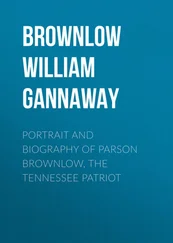It was in 1759 that Pitt, previously dismissed as a rather unpredictable politician with a distinctly chequered career, came to be regarded as the saviour of the nation. His insistence on fighting a European war with offensives elsewhere – in America, the Caribbean, Africa and on the oceans of the world – was crowned with success within months of the birth of his second son, William. Instead of having to face the French invasion feared throughout much of the year, Britain celebrated a stream of military successes that summer and autumn: victory at Minden in Germany in August, the storming of Quebec which shattered French rule in Canada in September, the simultaneous news of victories which reinforced British dominance of India, and then the defeat and scattering of the French fleet at Quiberon Bay in November. These events brought about a change in the public perception of the elder Pitt, analogous to the regard in which Churchill was held after 1940 compared to the controversy which previously surrounded him. From then on there was a sense of reverence, sometimes of awe, towards him, both on parliamentary occasions and among the wider public. Tall, haughty, but always eloquent, he was the great orator and war leader who had placed himself beyond party gatherings and factions to be at the service of the nation. The young William, as he became conscious of the people and events around him, would know only a world in which his father was treated as a legend.
Such renown was a far cry from the frustrated ambitions of earlier generations of Pitts. Being a younger son, the elder Pitt had enjoyed little in the way of financial inheritance, but his ancestors and relatives had been well connected and often very wealthy for the previous century and a half. Pitt’s forebears had included prominent and sometimes wealthy officials under Elizabeth I and James I, but it is Thomas Pitt of Bocconoc (1653–1726) who brings the family story to life. He was the buccaneering ‘Diamond Pitt’ who went to India and made a fortune in probably illegal competition with the East India Company, came back and purchased English property with it, including the medieval borough of Old Sarum, *and then returned to India on behalf of the Company as Governor of Madras. While there, he bought a 130-carat diamond for £25,000 which he hoped to sell to one of the European royal families for at least ten times as much. Returning to Britain during the War of the Spanish Succession (1702–1713), he discovered that European royalty was otherwise preoccupied, but eventually sold the diamond at a substantial but much smaller than expected profit to the Regent of France. With this and other earnings from his exploits in India, Thomas Pitt set about buying more estates, particularly in Cornwall. He was part of a new and often resented breed of rich men who came back from the East to buy property and parliamentary influence at home. He used his wealth to help all five of his children on their way in life, particularly the eldest son, another Thomas Pitt, who kept most of the family wealth and became Earl of Londonderry. A younger son, Robert Pitt, was put into Parliament for Old Sarum in 1705, for which he sometimes sat alongside his father. Robert Pitt was undistinguished, came close to disaster by being on the fringes of Jacobite attempts to overthrow the new Hanoverian dynasty, and died young, but not before fathering six children, the fifth of whom was William Pitt, the future Earl of Chatham. Once again the eldest son was a Thomas Pitt, who after much litigation and family dispute ended up with the lion’s share of the family wealth.
The family lived at Stratford-sub-Castle near Salisbury, but at the age of ten William was sent with his eldest brother Thomas to Eton, an experience which proved decisive in his later determination to educate all of his own children at home. He remarked much later to the Earl of Shelburne that he ‘scarce observed a boy who was not cowed for life at Eton; that a publick school might suit a boy of a turbulent forward disposition, but would not do where there was any gentleness’. 6
It seems that Robert Pitt had intended William for the Church, but William himself had other ideas, joining the army at the lowest officer rank in the cavalry, as a Cornet of Dragoons. He never saw active service, since the long-serving Whig Minister Robert Walpole did an effective job of keeping Britain out of various international disputes at the time, but he took the opportunity to travel to the Continent on a modest version of the Grand Tour through France, Switzerland and Holland. This was the only time he left his native country; an eighteenth-century political career did not require extensive travel. Like his son, he was later to dispose of huge forces, alliances and treaties around the globe, while only once in his life leaving the shores of Britain. He was clearly determined to continue the emerging Pitt tradition of serving in Parliament, and was duly elected for the family borough of Old Sarum in the general election of 1734, but only after some acrimony when his brother Thomas suggested giving the seat to the sitting Member, with financial compensation for William instead.
Although Pitt seems to have been well disposed towards Walpole and the Whigs at the time he was elected, he soon fell in with key figures in the opposition, notably Lord Cobham, his ex-Colonel, and Prince Frederick, the Prince of Wales. The relationship between Prince Frederick and his father King George II was an early example of a noted Hanoverian tradition, being one of unmitigated hatred between monarch and heir. The Prince of Wales was truly loathed by both his father and mother. Queen Caroline once exclaimed when she saw the Prince pass her dressing-room window: ‘Look, there he goes – that wretch! that villain! – I wish the ground would open this moment and sink the monster to the lowest hole in hell!’ 7Such loathing was exacerbated when the King’s adoption of a Hanoverian mistress became public knowledge, so helping to make the Prince the more popular member of the Royal Family. Pitt, as a young MP and army officer, became part of the Prince’s circle, with some of his early parliamentary speeches being unmistakably toadying towards the Prince. He became a regular opponent of Walpole, and was dismissed from his position in the army as a result.
A study of the rise to power of the elder Pitt over the subsequent twenty years provides four main conclusions which assist in appreciating the career of his son. First, elections in the eighteenth century were not contested by organised political parties with a programme or manifesto. Although in the mid-eighteenth century many politicians could still be roughly categorised as Whig or Tory, even this distinction was breaking down. The opposition to the long-running Whig administrations would generally include dissident Whigs as well as a rump of Tories. In any case, most Members of Parliament had no wish to pursue a political career as such and were not elected to pursue any particular policy, many seeing their duty as one of supporting the King’s chosen Ministers unless they did something manifestly outrageous. As a result, politicians did not generally win power by campaigning at a general election and winning a majority for a specific programme, and nor did voters necessarily have the composition of the government foremost in their minds – no general election in the entire eighteenth century led directly to a change of government. There were really two routes into office: one was to be an ally of the Crown, or of someone who would inherit the crown in due course; the other was to make such a nuisance of oneself in Parliament that Ministers seeking a quiet life or a broad consensus would have to include the troublemaker in the government. The elder Pitt tried the first of these approaches for about ten years and then switched to the second, although by that time King George II was most reluctant to appoint him to anything. As Pelham, the leading Minister of the mid-1740s, wrote to Stephen Fox in 1746 on Pitt’s appointment as Paymaster General: ‘It is determined, since the King will not hear of Pitt’s being Secretary att [sic] War, that he shall be Paymaster … I don’t doubt but you will be surpris’d that Mr. Pitt should be thought on for so high and lucrative an employment; but he must be had, and kept.’ 8There was never any love lost between Pitt and the other leading politicians of the day or between him and either of the kings he served. Each time he was appointed to the government it was because his speeches were too effective or his support too great to keep him out.
Читать дальше












